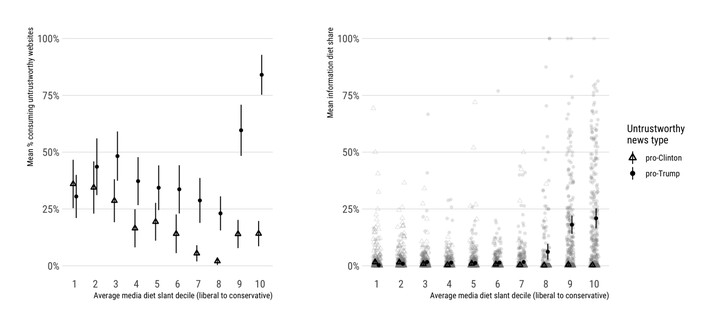
Abstract
Although commentators frequently warn about echo chambers, little is known about the volume or slant of political misinformation that people consume online, the effects of social media and fact checking on exposure, or the effects of political misinformation on behaviour. Here, we evaluate these questions for websites that publish factually dubious content, which is often described as fake news. Survey and web-traffic data from the 2016 US presidential campaign show that supporters of Donald Trump were most likely to visit these websites, which often spread through Facebook. However, these websites made up a small share of people’s information diets on average and were largely consumed by a subset of Americans with strong preferences for pro-attitudinal information. These results suggest that the widespread speculation about the prevalence of exposure to untrustworthy websites has been overstated.